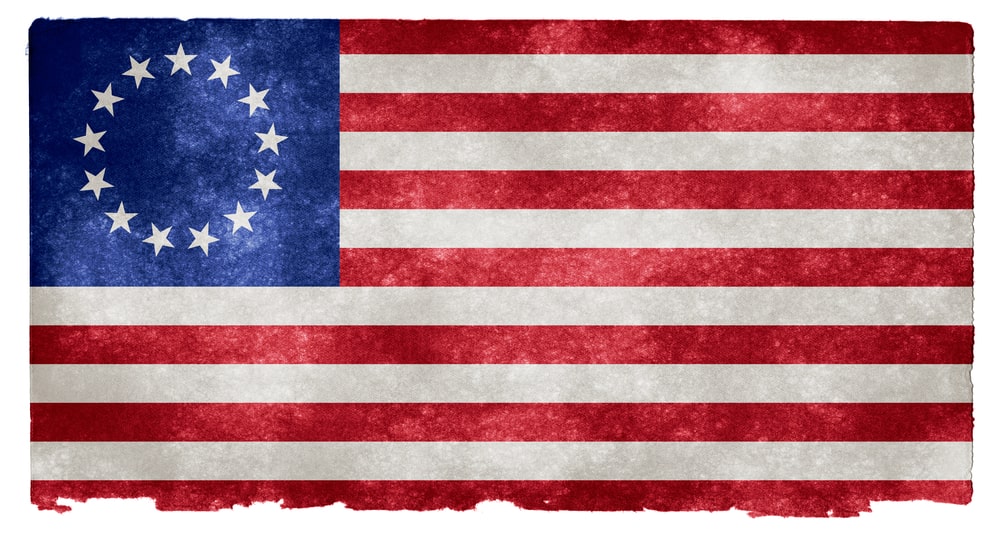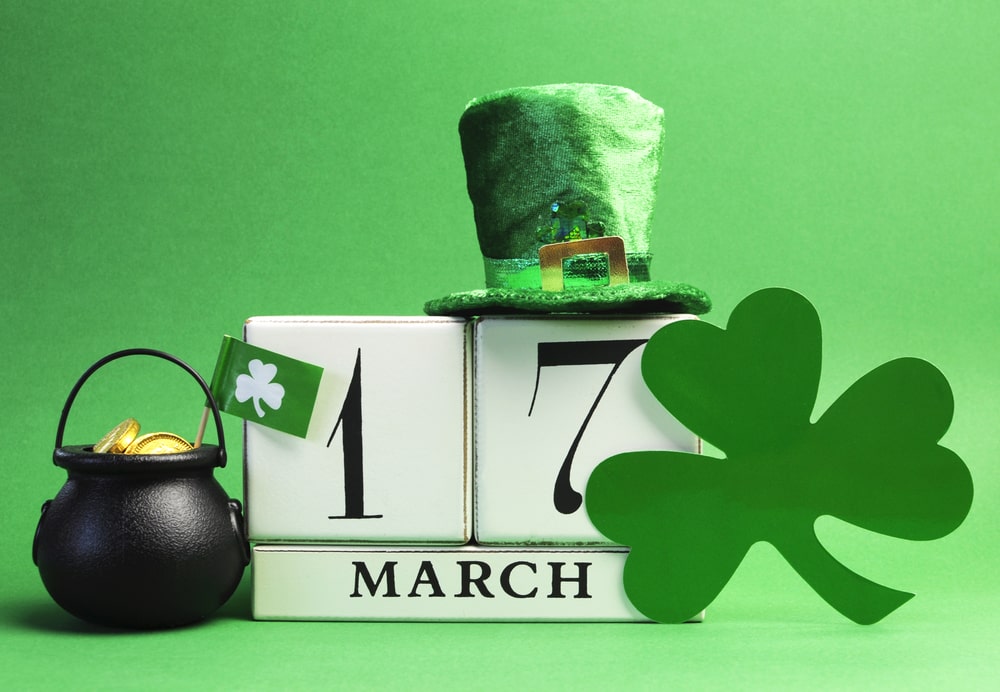“I hope I shall possess firmness and virtue enough to maintain what I consider the most enviable of all titles, the character of an honest man.” – George Washington
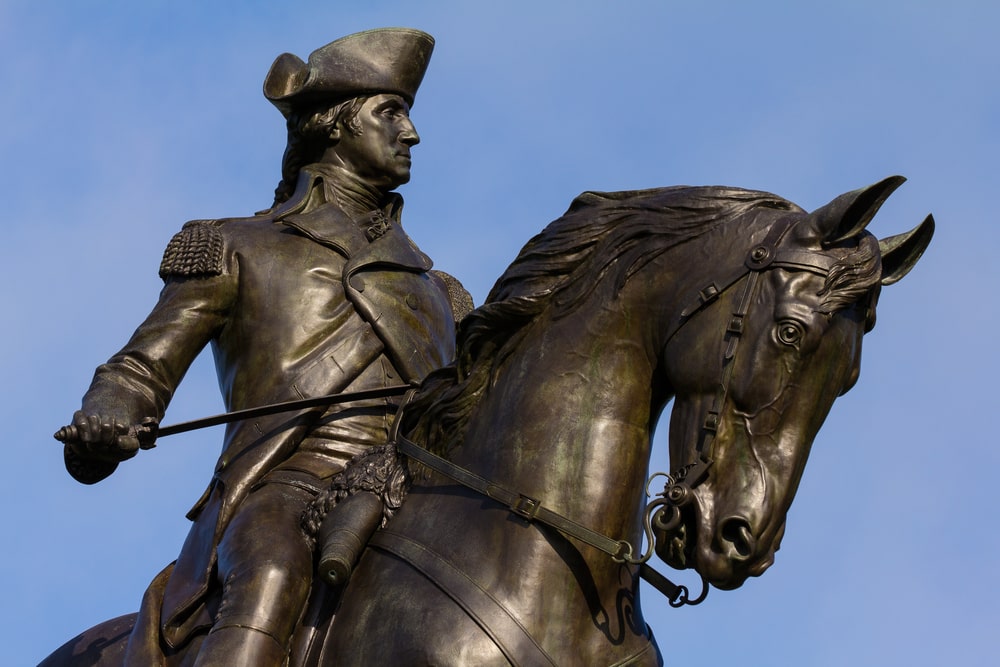
(Photo: George Washington during the Revolutionary War)
The Fourth of July marks a great and long-remembered day in American history. It was on July 4th in 1776 that the American colonies declared their independence from Great Britain and became an independent nation. In 1870, Independence Day became a federal holiday, though it wasn’t until 1938 that it became a paid federal holiday.
Our founding fathers consist of seven influential men. They are George Washington, Thomas Jefferson, John Adams, Benjamin Franklin, James Madison, John Jay, and Alexander Hamilton. While each of these men had faults and made mistakes, together they created our nation and continue to be remembered for their patriotism and courage.
In honor of Independence Day, let’s reflect on one of our founding fathers, George Washington: his life, his legacy, and the ways we have remembered and memorialized him.
Biography
George Washington was born on February 22, 1732, in Westmoreland, Virginia. He was the eldest child of Augustine and Mary Ball Washington, though he was the fourth child overall (his mother being Augustine’s second wife). Not much is known about his childhood, except that he was mostly educated at home and helped his father on the tobacco farm.
When he was 11, his father died, and he became the ward of his half-brother, Lawrence. Sadly, in 1752, Lawrence died of tuberculosis when Washington was only 20 years old, leaving him as the heir of Mount Vernon and the family lands.
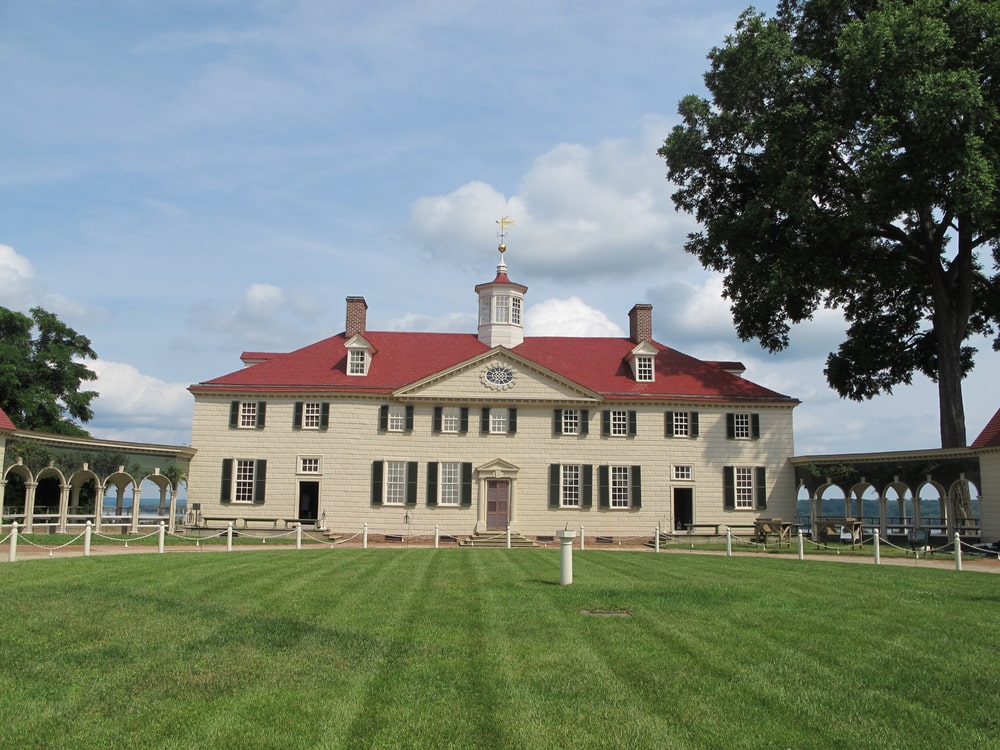
(Photo: George Washington’s family home of Mt. Vernon)
Shortly after Lawrence’s death, Washington’s military career began. During the French and Indian War, he was appointed a major in the Virginia militia. Though he fought bravely, bureaucracy mired his experience with the militia, and in 1758, he resigned and returned to Mount Vernon.
At this time, he married Martha Custis, a widow, and loved her two children as his own. From 1758 until the Revolutionary War began, he focused on his home and lands. As tensions with Great Britain continued to rise, he became involved in politics, and in 1775, he was appointed Major General and Commander-in-Chief of the colonial forces by the Second Continental Congress.
Through many dark days and bloody battles, Washington commanded the colonial forces until November 1783 when the war was over. He resigned from his position on December 23, 1783, and returned home to Mount Vernon to rebuild his lands.
Then, in 1789, he became the first president of the United States. In this role, he set the precedent for all the presidents that would follow. He served two terms, and in 1797, he turned the presidency over to John Adams and retired to Virginia. Two years later, in December 1799, he became sick and died. The entire country mourned at his passing.
Washington’s Legacy
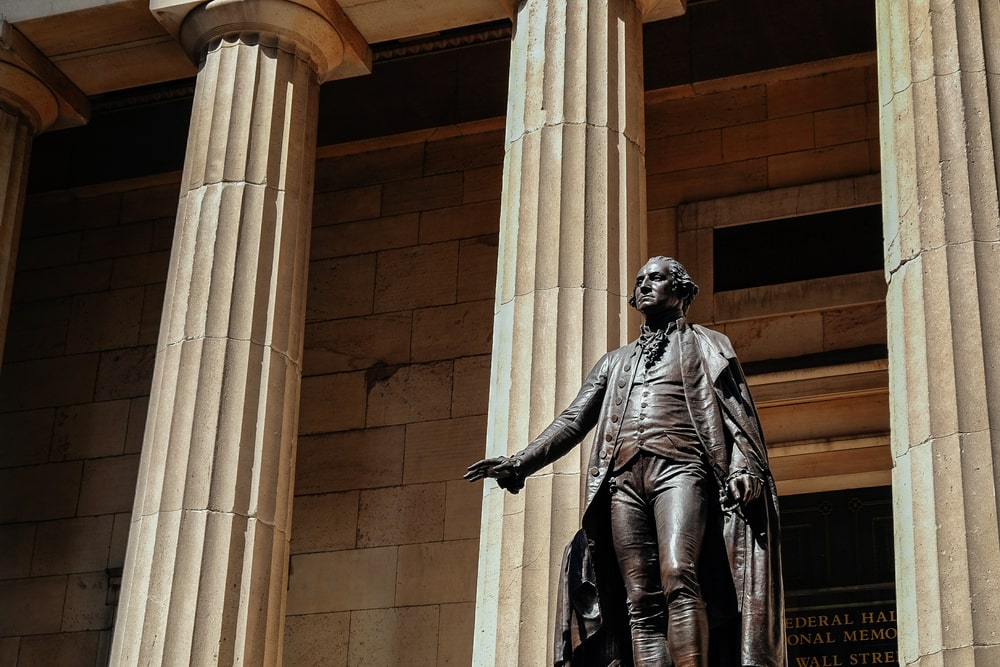
(Photo: Statue of George Washington in New York City)
As we look back at George Washington’s life, none of us can deny that he left a legacy. Often called the “Father of His Country,” Washington lived with integrity and character. He cared deeply for the men under his command, he loved his wife and adopted children loyally, and he is known as a man of personal integrity, focused on duty, honor, and patriotism.
He was a loving husband and father, a military hero, and our first president. To this day, we remember him with respect and awe for who he was and what he accomplished.
At his funeral, Congressman Henry Lee eulogized Washington with these words, which would impress Washington’s memory on the American people:
“First in war, first in peace, and first in the hearts of his countrymen, he was second to none in humble and enduring scenes of private life. Pious, just, humane, temperate, and sincere; uniform, dignified, and commanding; his example was as edifying to all around him as were the effects of that example lasting. … Correct throughout, vice shuddered in his presence and virtue always felt his fostering hand. The purity of his private character gave effulgence to his public virtues. … Such was the man for whom our nation mourns.”
Washington Remembered
Even now, we don’t have to look far to see the many ways that Washington has been remembered and memorialized. The Washington Monument, George Washington University, the state of Washington, Mt. Rushmore, the $1 bill, plus numerous institutions, towns, counties, parks, and statues are all named to honor his memory.
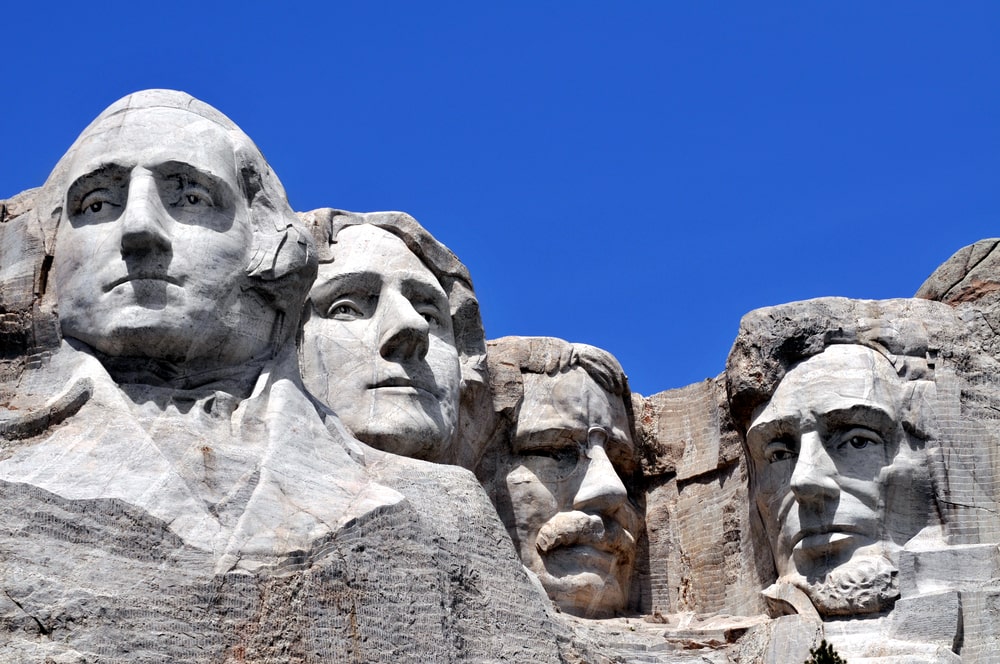
(Photo: Mount Rushmore, Washington depicted on far left)
It is through these permanent memorials that we ensure a lasting tribute for those who have been loved and lost. Memorials also allow us, as people, to honor those we wish to always remember. Just as we create memorials for our heroes, we also create them for our loved ones in the form of grave markers, scholarship funds, or memorial donations.
The Importance of Legacy
As we reflect on George Washington’s life, think also of your own life. Are you leaving a legacy that you and your family can be proud of? Have you shared what’s most important with those you care about? It’s up to you whether you have an accidental legacy or an intentional one. Whether your legacy empowers others or brings them low.
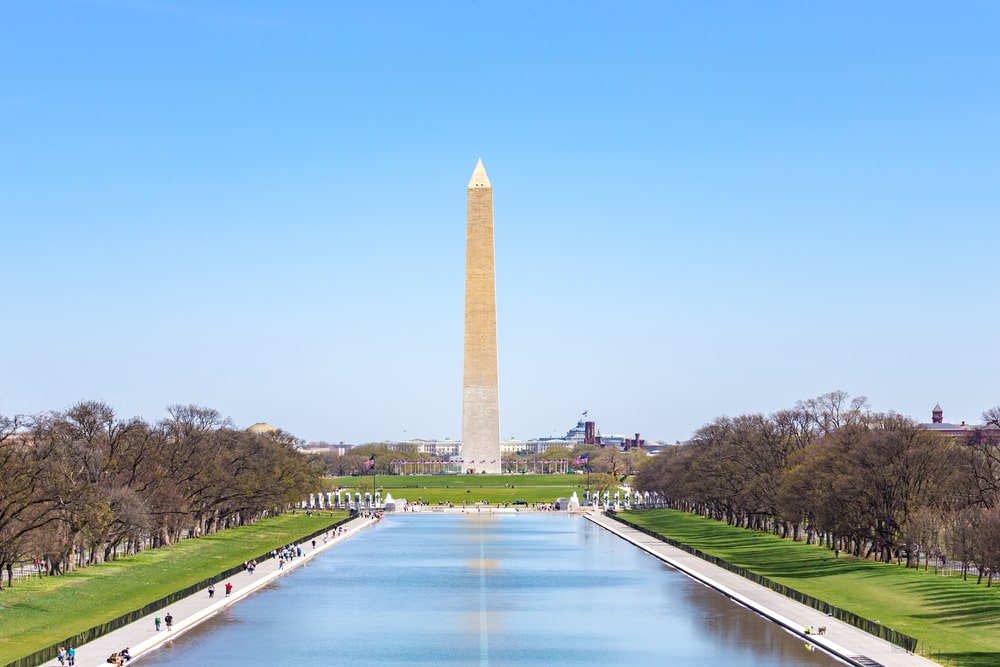
(Photo: Washington Monument, built to commemorate his life and legacy)
With our legacies, we contribute to the future. The things we do and say affect the lives of others and have the power to create good or bad. What we do matters. What George Washington did matters. Most of us are not prominent people. Our names are unknown to thousands, or even millions, of people. But then, fame and glory aren’t the point of a legacy. Instead, it is our responsibility as good men and women to create legacies that will take our families and the next generation to a level we can only imagine.
Let’s learn from George Washington and live lives that positively impact others and create legacies worth remembering.

